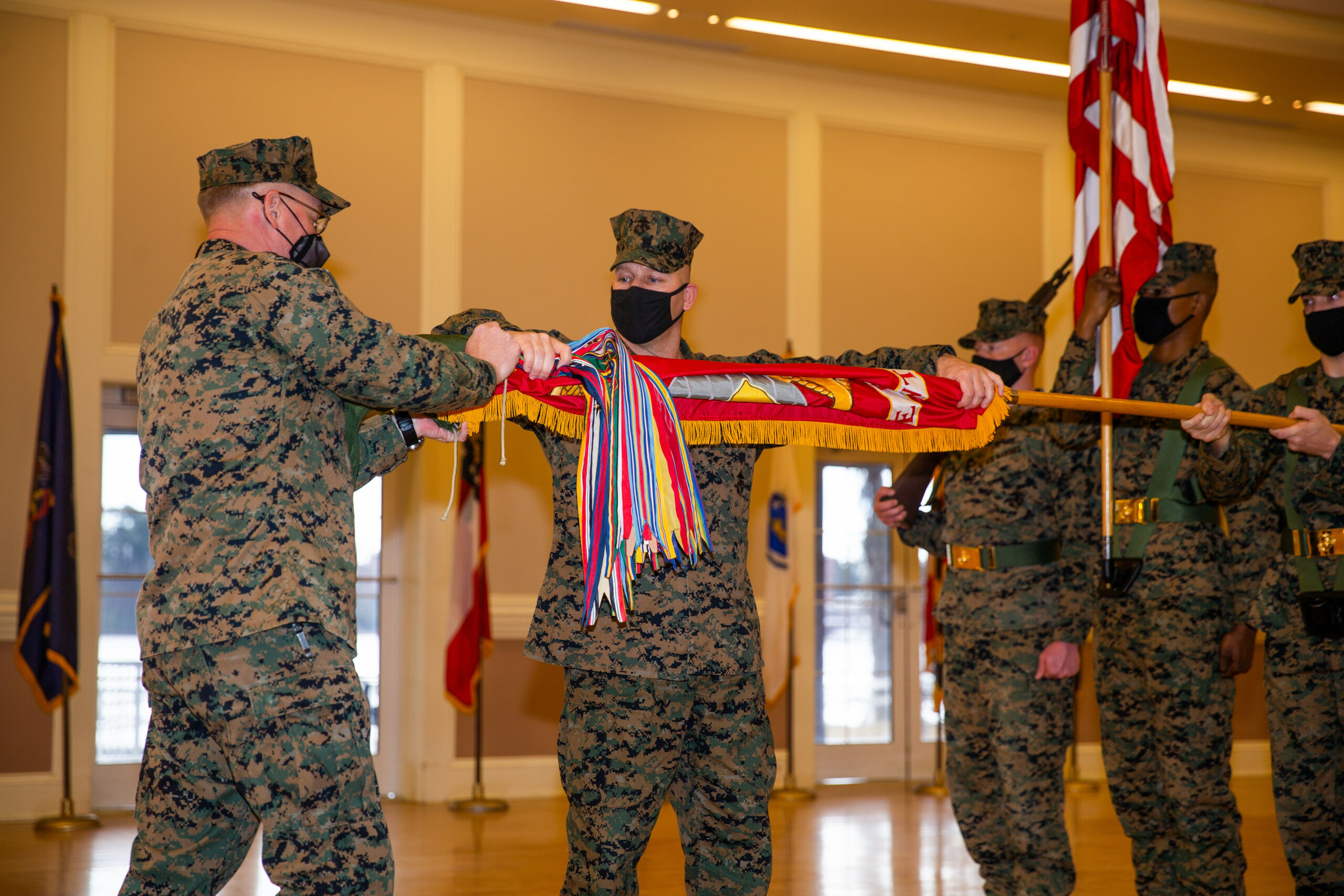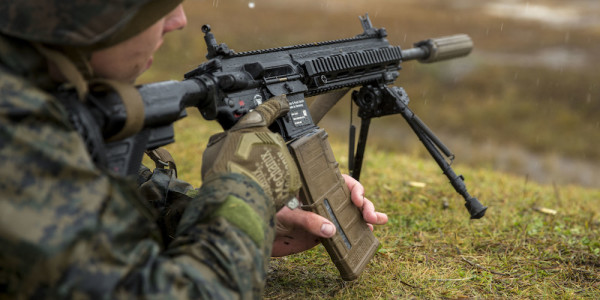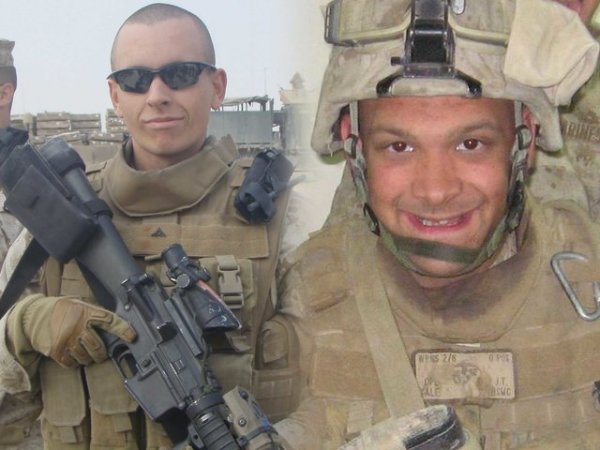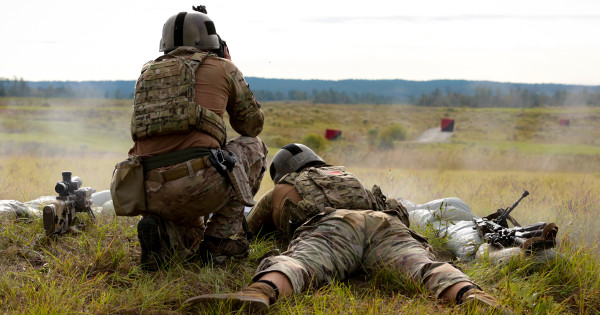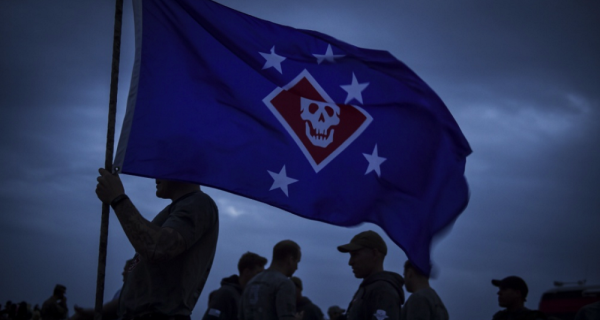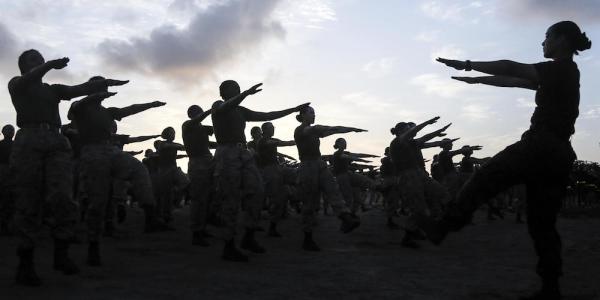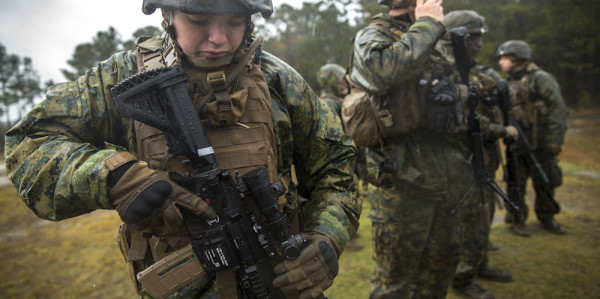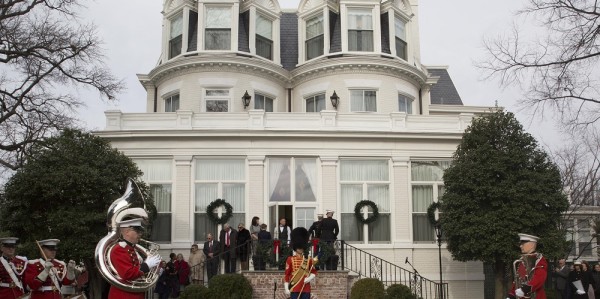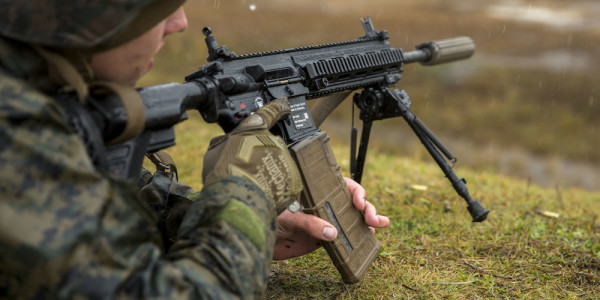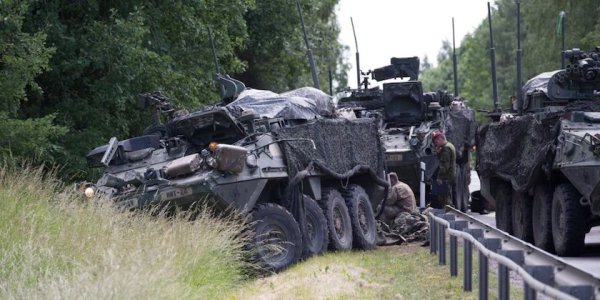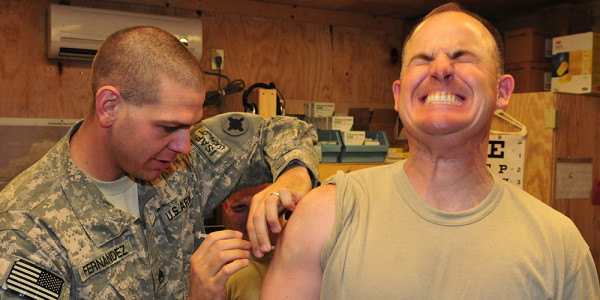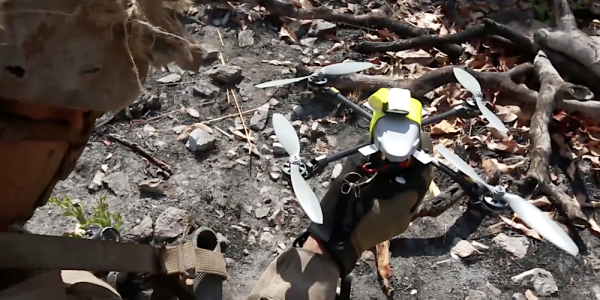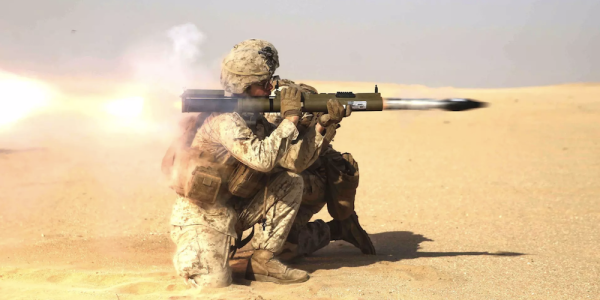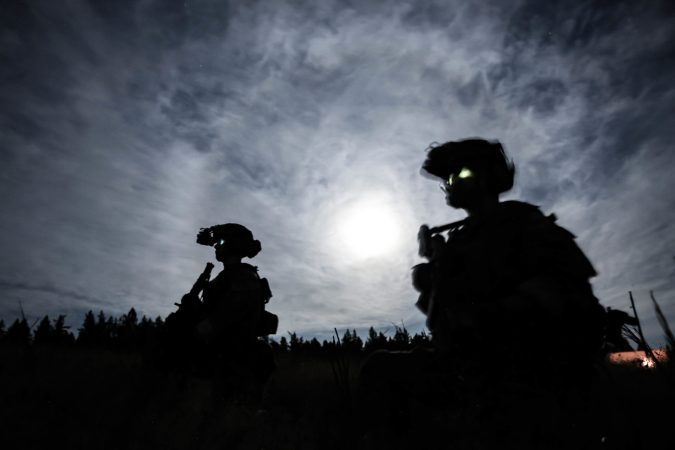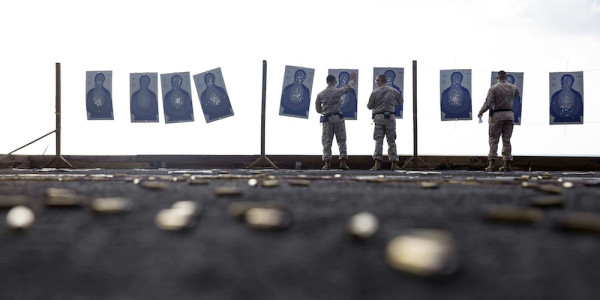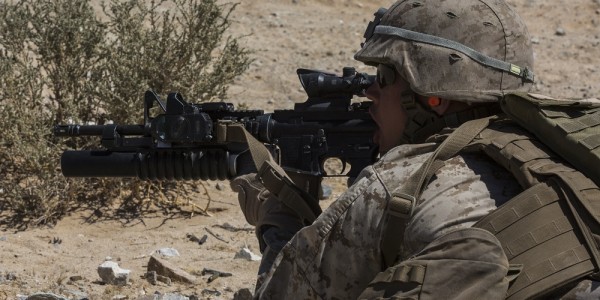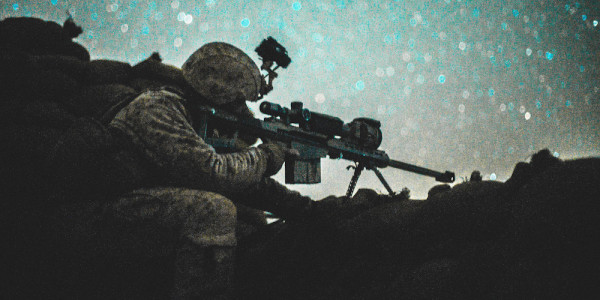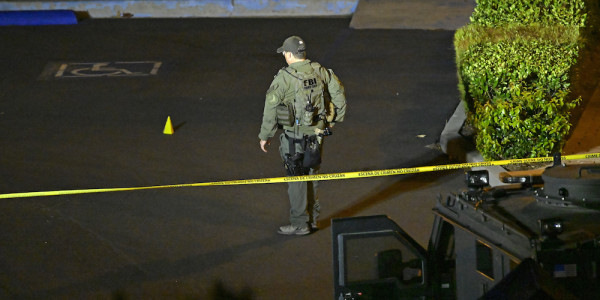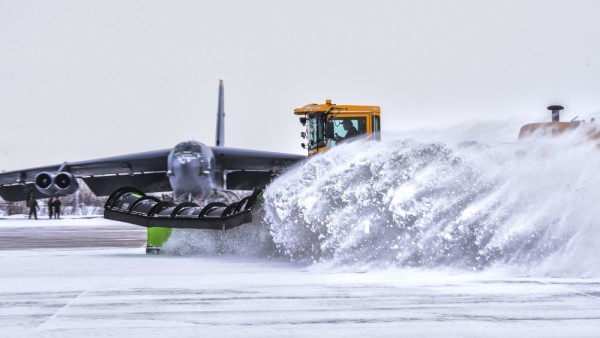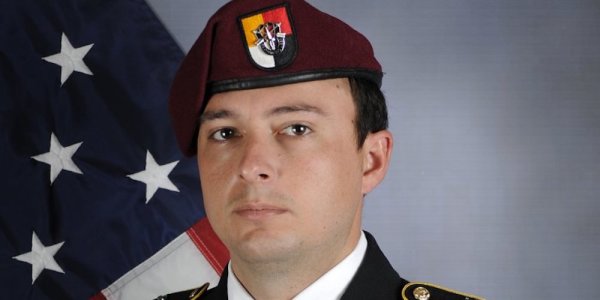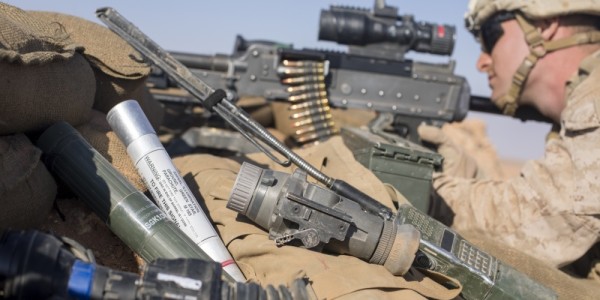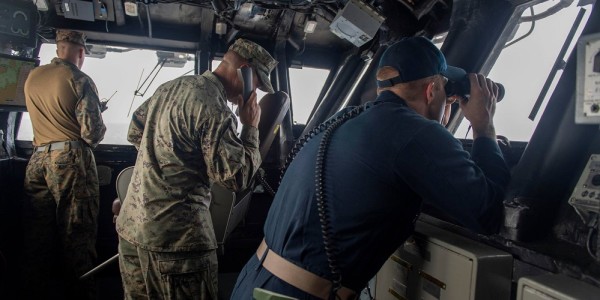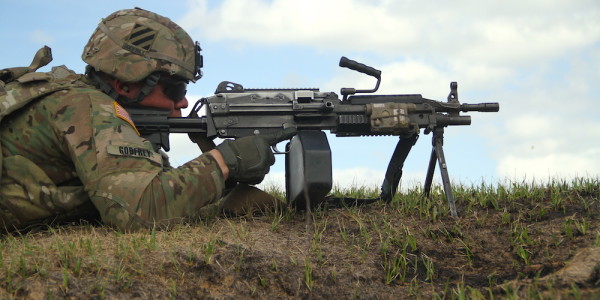The Marine Corps is saying goodbye to its storied 8th Marine Regiment, an infantry unit based in North Carolina that took part in the ‘Banana Wars’, World War II, peacekeeping in Lebanon, and recent conflicts in Iraq and Afghanistan.
“Whatever the mission, we’ve always risen to the occasion, and the Marines are better for that, and they can take that with them on to their next unit,” said Sgt. Maj. Keith Hoge, the regimental sergeant major. “I hope that we’ve made them proud, those of the past and those who have now moved out … can take with them the 8th Marine Regiment fighting spirit and go on and do good things in the Marine Corps.”
The 2nd Marine Division unit cased its colors at a deactivation ceremony at Camp Lejeune on Jan. 28, the latest unit to be retired as part of commandant Gen. David Berger’s force design effort to build the Marine Corps into an agile, island-hopping force focused on China. Berger wants the Corps’ ground combat force slimmed from 24 to 21 active infantry battalions and seven regimental headquarters units by 2030.
So what happens to the regiment’s three infantry battalions? According to officials, the 1st Battalion has already been task-organized under the 6th Marine Regiment and the 2nd Battalion has been placed under the 2nd Marine Regiment. Meanwhile, the 3rd Battalion will be deactivated once it returns from its deployment to Okinawa, Japan.
The regiment was formally organized in 1917 before America’s involvement in World War I in Quantico, Virginia, and has seen plenty of action in the years since. Its lineage includes fights with bandits in Haiti in 1920, heavy combat in the jungles of the Pacific during World War II, and peacekeeping duties in Lebanon during the 1980s.
The unit suffered a “devastating loss” on Oct. 23, 1983, after a suicide bomber drove a truck filled with explosives into a Marine compound in Beirut occupied by the 1st Battalion, 8th Marine Regiment. The blast killed 241 American service members, including 220 Marines, marking the worst single-day loss for the Marine Corps since the bloody battle of Iwo Jima in 1945. President Ronald Reagan pulled the Marines from Lebanon the following year.

“I think it changed how we all look at the world,” former Marine commandant Gen. Robert Neller said of the attack, which has been linked to Iran. “I think it changed all of us and I think it made us realize that it’s a dangerous place out there and the reason our nation has Marines is so that we can go to bed at night and not have to worry about stuff like that.”
The 8th Marine Regiment also took part in operations to protect Americans during the Liberian civil war and participated in the 1991 Gulf War. And more recently, Marines of the regiment were deployed to Iraq and Afghanistan after the Sept. 11 attacks.
The deactivation marks the “transition of a storied regiment that has performed so well since 1917,” said Maj. Gen. Frank Donovan, the commanding general of the 2nd Marine Division.
“The transition this time is part of our overall look and the Commandant’s force design to create organizations and units prepared for the future fight. It’s just a natural transition that we go through as we contract or expand the Marine Corps in certain locations and places, either by skillset or by geographical location, that fits with force design.”
The 8th Marines are among several units that have recently closed up shop, including law enforcement battalions, tank battalions, and logistics units. The Corps’ plan calls for significant reductions in artillery units, helicopter squadrons, and a total divestment from law enforcement battalions, tank battalions, and bridge companies.
But it may not be goodbye forever. A close reading of the 8th Marine Regiment’s history shows it’s been deactivated several times, only to be reactivated to deal with a new crisis. So hang on to those colors bearing the motto ‘more than duty.’ You never know when they might be needed again.

